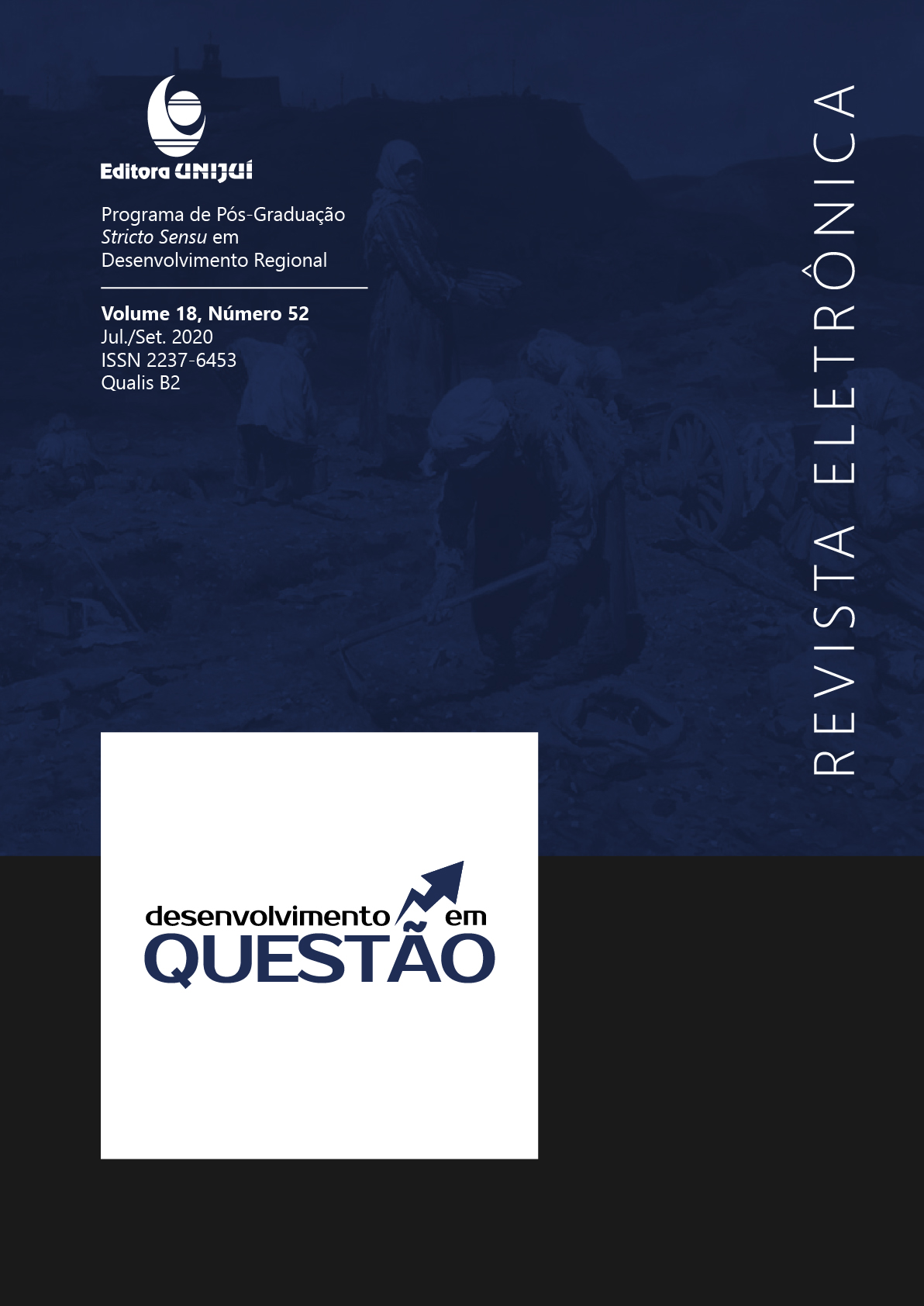O Fazer Científico a Partir dos Grupos de Pesquisa da Área da Administração: em busca da criatividade de Celso Furtado
DOI :
https://doi.org/10.21527/2237-6453.2020.52.55-74Mots-clés :
Administração; Produção Científica; Desenvolvimento; Consciência Crítica.Résumé
A Administração caminha junto a modernização da sociedade. Por isso, a ciência da Administração é vista como voltada às organizações privadas, o que é não natural e negligencia a realidade desta atividade. Este estudo coloca a ciência da Administração visando a sociedade e não as empresas capitalistas, com foco nos grupos de pesquisa de Administração vinculados à Universidade Federal de Minas Gerais (UFMG). Com a intenção de apropriar e re-situar as universidades públicas para resolução coletiva de problemas sociais, ligando-as com a criatividade de Celso Furtado. Esse trabalho visa, então, identificar a convergência entre tais produções e o conceito de criatividade humana. Para analisar os fatores descritos, foram mapeados os grupos de pesquisa em Administração cadastradas no CNPq, localizados na UFMG. O mapeamento dos grupos foi facilitado devido ao acesso das informações contidas no sítio eletrônico da CNPq, onde um total de 19 grupos e 324 artigos se adequaram aos elementos estruturantes deste estudo. Após a análise de conteúdo dos artigos, apenas um grupo de pesquisa, dentro da amostra selecionada, apresentou convergência com o conceito de desenvolvimento e criatividade humana, levando à hipótese inicial de que pouco é feito para modificar a realidade periférica a partir da ciência.
Téléchargements
Publié-e
Comment citer
Numéro
Rubrique
Licence
Ao publicar na Revista Desenvolvimento em Questão, os autores concordam com os seguintes termos:
Os trabalhos seguem a licença Creative Commons Atribuição 4.0 Internacional (CC BY 4.0), que permite:
Compartilhar — copiar e redistribuir o material em qualquer meio ou formato;
Adaptar — remixar, transformar e criar a partir do material para qualquer fim, inclusive comercial.
Essas permissões são irrevogáveis, desde que respeitados os seguintes termos:
Atribuição — Atribuição — os autores devem ser devidamente creditados, com link para a licença e indicação de eventuais alterações realizadas.
Sem restrições adicionais — não podem ser aplicadas condições legais ou tecnológicas que restrinjam o uso permitido pela licença.
Avisos:
A licença não se aplica a elementos em domínio público ou cobertos por exceções legais.
A licença não garante todos os direitos necessários para usos específicos (ex.: direitos de imagem, privacidade ou morais).
A revista não se responsabiliza pelas opiniões expressas nos artigos, que são de exclusiva responsabilidade dos autores. O Editor, com o apoio do Comitê Editorial, reserva-se o direito de sugerir ou solicitar modificações quando necessário.
Somente serão aceitos artigos científicos originais, com resultados de pesquisas de interesse que não tenham sido publicados nem submetidos simultaneamente a outro periódico com o mesmo objetivo.
A menção a marcas comerciais ou produtos específicos destina-se apenas à identificação, sem qualquer vínculo promocional por parte dos autores ou da revista.
Contrato de Licença (para artigos publicados a partir de 2025): Os autores mantêm os direitos autorais sobre seu artigo, e concedem a Revista Desenvolvimento em Questão o direito de primeira publicação.











